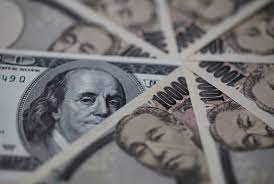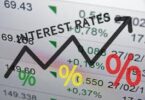LONDON/SINGAPORE (Reuters): The dollar barely budged on Wednesday as investors shrugged off Fitch’s US credit rating downgrade, while the yen made up ground as traders assessed the Bank of Japan’s approach to monetary policy.
The agency on Tuesday downgraded the United States to AA+ from AAA in a move that drew an angry response from the White House and surprised investors, coming despite the resolution two months ago of a debt ceiling crisis.
It cited likely fiscal deterioration over the next three years and repeated down-the-wire debt ceiling negotiations that threaten the government’s ability to pay its bills.
There was little reaction in the world’s most traded currency pair, with the euro down less than 0.1 per cent against the dollar at $1.098.
The dollar index, which tracks the currency against six peers, stood 0.23pc higher at 102.24, just shy of Tuesday’s three-week high of 102.43.
Analysts said the dollar was likely benefiting from its status as a safe haven, as investors’ risk appetite waned and global stocks fell.
“Even when there’s bad news … there is a behaviour where businesses and people think ‘I need my dollars to pay my invoices and dollar-denominated debts’,” said Jane Foley, head of FX strategy at Rabobank.
“This is why I think there really hasn’t been a huge push-back from this sort of news, because it doesn’t change the fact that people do still need dollars around the world.”
The dollar also found some support from Tuesday’s economic data that showed US job openings remained at levels consistent with a tight labour market, even as they fell to the lowest level in more than two years in June.
A separate report suggested US manufacturing might be stabilising at weaker levels.
The Japanese yen rose 0.42pc to 142.74 per dollar and looked set to reverse three sessions of losses, with traders still assessing the implications of the BOJ’s move on Friday to loosen its grip on interest rates.
Deputy governor Shinichi Uchida said on Wednesday the central bank’s decision was aimed at making its massive stimulus more sustainable and was not a prelude to an exit from ultra-low interest rates.
“I think the market is still trying to get their head around what this whole thing means,” said Rodrigo Catril, senior currency strategist at National Australia Bank.
Sterling was flat at $1.278. The Bank of England sets interest rates on Thursday and the market is uncertain whether it will deliver a 25 or 50 basis point increase from the current 5pc.
The Australian dollar fell 0.52pc to $0.658, having earlier slid to its lowest since June at $0.657.
It was extending a sharp fall from the previous session after the Reserve Bank of Australia on Tuesday held interest rates and signalled that it might have finished tightening.







